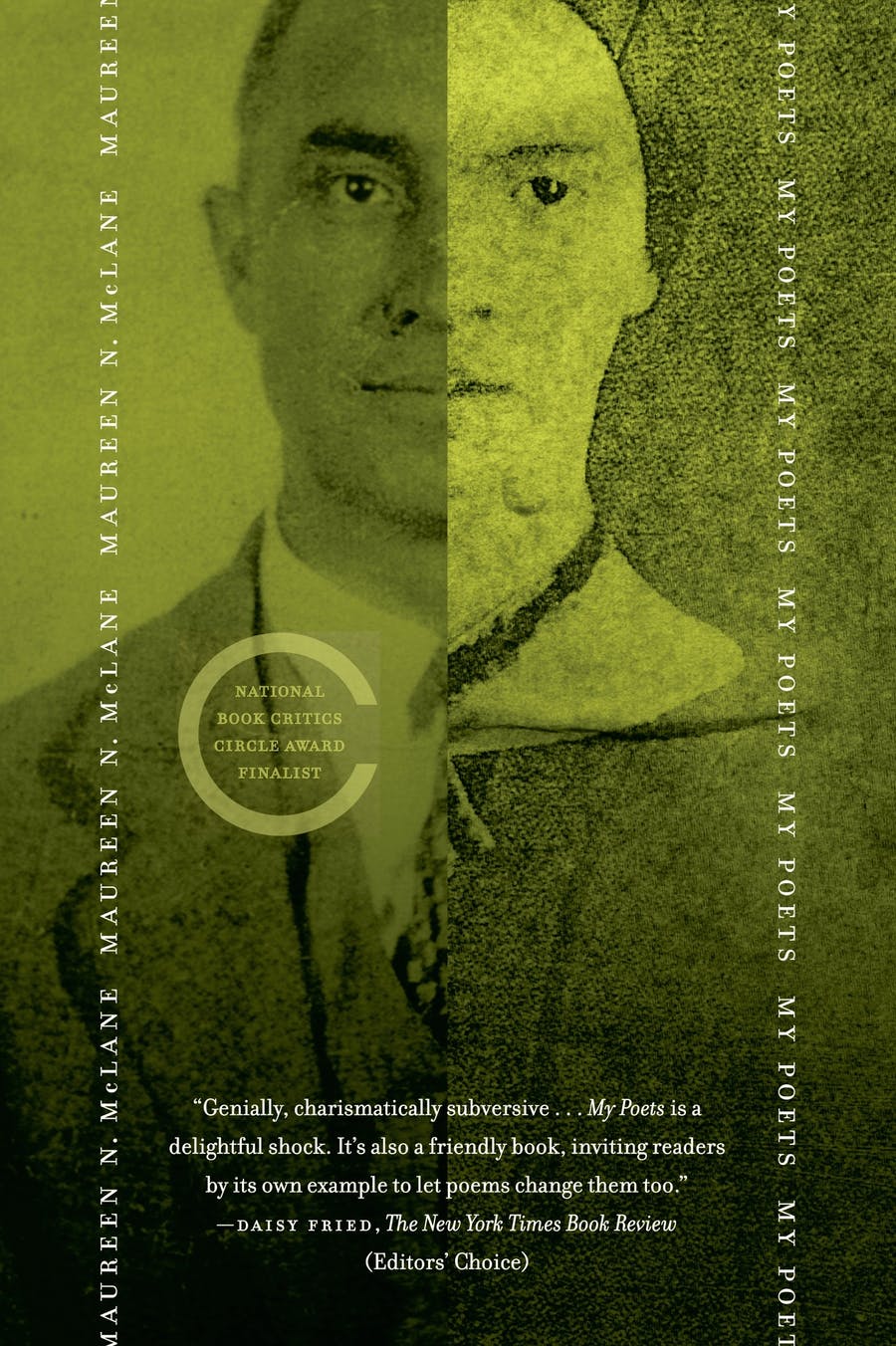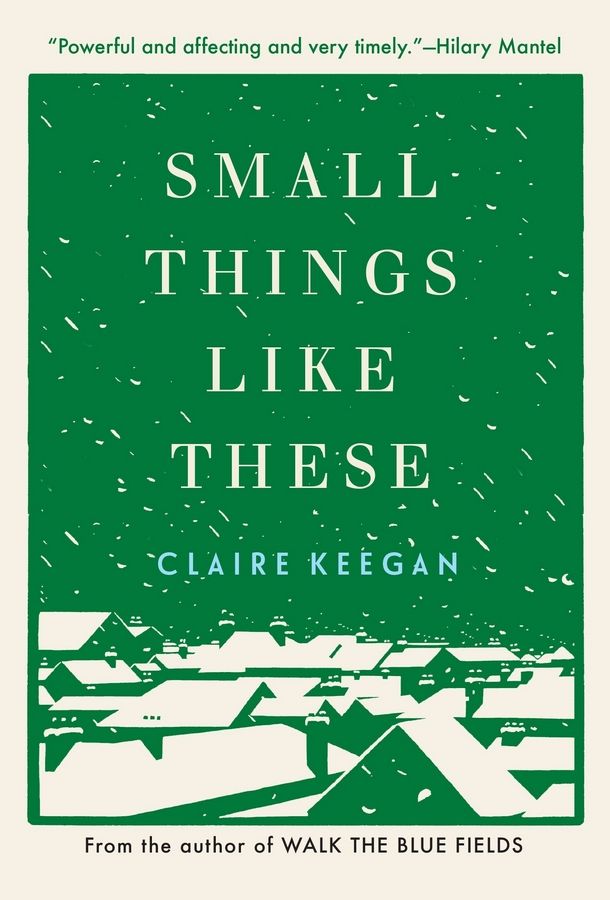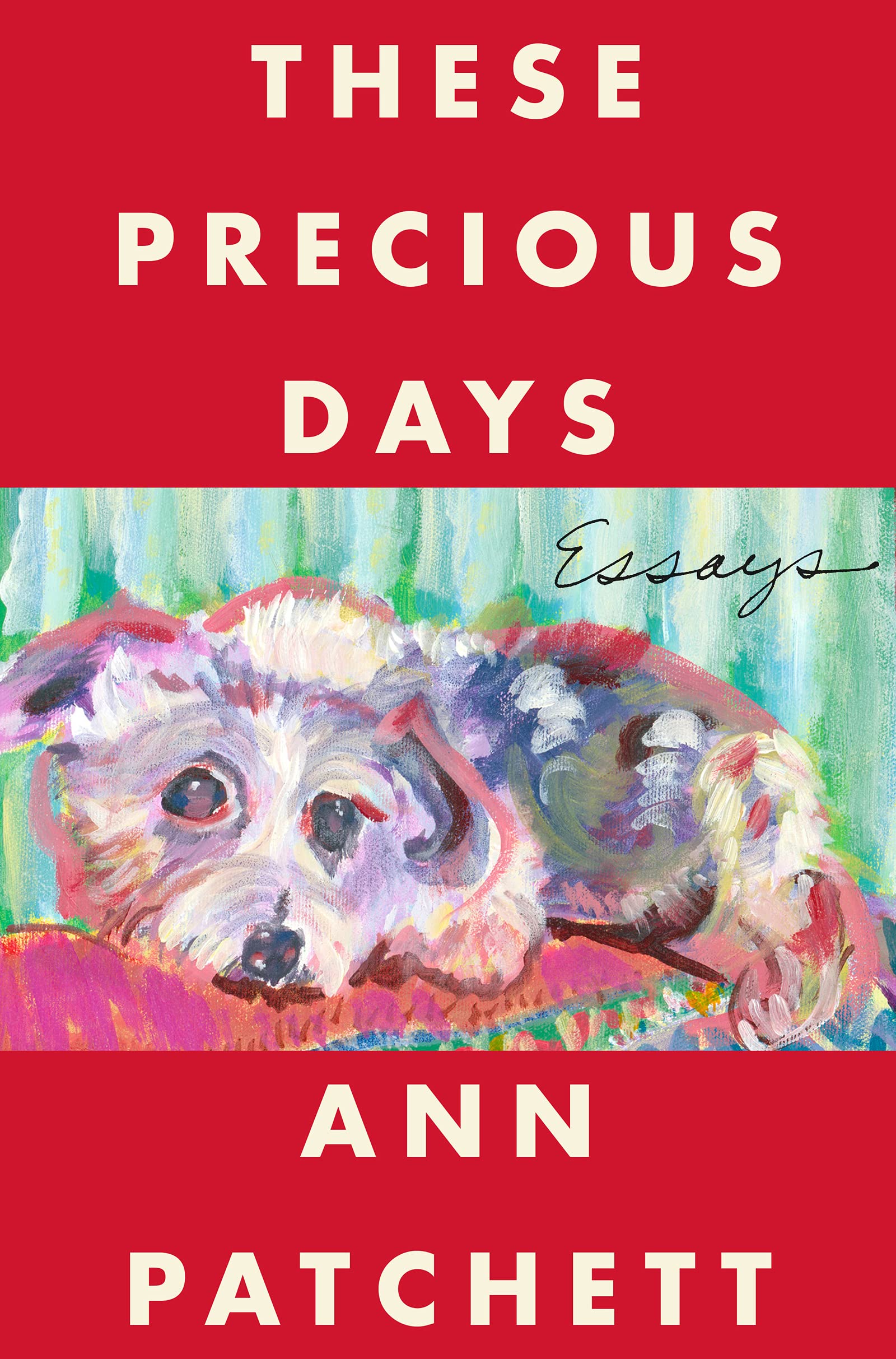Everybody’s waiting for the man with the bag. This year, it’s full of books! Our staff picked a few we think readers should hold out for this holiday.

In my personal canon I keep a list of treasured hybrid books—a menagerie of gryphons and manticores, that are part autobiographical literary analysis, part bildungsroman bibliophilia—that are not only passing strange but also approach their subjects with such originality that they make guaranteed successful gifts for any avid reader. Among them are Maggie Nelson’s Bluets and The Argonauts, Gaston Bachelard’s The Poetics of Space, William Gass’s On Being Blue, and Italo Calvino’s Six Memos for the Next Millennium. Recent additions are Olivia Laing’s A Trip to Echo Spring, J. D. Daniels’ The Correspondence, and Sarah Manguso’s 300 Arguments. A dear friend has been lobbying for me to consider Ali Smith’s Artful and Mark Strand’s The Weather of Words. The selection committee will reconvene in January 2022.
But before that happens, I hereby announce the inclusion of Maureen N. McLane’s My Poets into this cohort. On its table of contents, it presents as a compendium of influence, with chapter titles like “My Elizabeth Bishop” and “My Marianne Moore.” And it is that, in part, but it is less a deep dive into each so much as an incandescently gifted thinker and writer stone-skipping across certain themes—Emily Dickinson, for instance, reframed as the essential poet of post-9/11 America. Or Louise Glück as the century’s great anti-Romantic. What makes My Poets so decidedly original, however, is its combinatory tack, as it is also a memoir, seen through the work and themes of McLane’s poets, of her failed marriage and emergent queerness, as well as a künstlerroman, charting her first, clumsy efforts to understand a form she found so initially mysterious and which, unbeknownst to her at the time, gave rise to the artist she has since become.
Above all, it is a book about becoming: how we morph into someone nearly unrecognizable to ourselves as we read and grow and lose and fail and birth and grieve and revise, as we come to impasses and then break through, trying, occasionally, to make sense of it while also asking what it means, if it means anything at all.
—Adam Ross, Editor

Walking through Dublin in the fall of 2019, I end up down a side street off Essex Gate, where a sprawling, unlabeled list in bright yellow plastic is pasted to the wall. On it are hundreds of names, followed by ages and dates of death. I wonder why they’re there, what they are: victims of war? famine? Days later, my professor will tell our class of oblivious American students the history of the Magdalene Laundries. Claire Keegan’s recent novel, Small Things Like These, returns me to this unsettling moment in bringing Ireland’s former practice into jarring focus.
Keegan’s brief novel reads more like a long short story, in part due to her deft economy of language and strategic narrative pace. Set during the Christmas season of 1985, Keegan’s novel follows hardworking and family-oriented Bill Furlong through New Ross in southeast Ireland, depicting ordinary scenes of his job as a coal merchant and exchanges with his wife and five school-aged daughters. The images of working-class Ireland offer a simple beauty; Keegan writes with perceptive honesty and reverence for mundanity, revealing the profundity of the everyday:
Always it was the same, Furlong thought; always they carried mechanically on, without pause, to the next job at hand. What would life be like, he wondered, if they were given time to think and to reflect over things? Might their lives be different or much the same—or would they just lose the run of themselves? Even while he’d been creaming the butter and the sugar, his mind was not so much upon the here and now and on this Sunday nearing Christmas with his wife and daughters so much as on tomorrow and who owed what.
While the intimacies of Keegan’s familial still life are resonant, she overlays a haunting allusion to Ireland’s past that transforms the novel into a crucial act of remembering, making this text one with the ability to endure. On a coal delivery to the town convent, which also functions as a laundry service and training school for girls, Furlong finds himself disconcerted. When he tells his wife of the frightened women and girls he has seen scrubbing the chapel floors, she says simply, “If you want to get on in life, there’s things you have to ignore.” Such complicity was largely what allowed the real Laundries to operate from 1922-1996, where the Catholic church, backed by the state, sent unmarried mothers to perform hard labor in poor conditions, often leading to their or their children’s deaths.
Amidst the backdrop of Christmas, Furlong’s empathy for these women is heartwarming while avoiding the trap of self-righteousness:
The worst was how the girl had been handled while he was present and how he’d allowed that and had not asked about her baby—the one thing she had asked him to do—and how he had taken the money and left her there at the table with nothing before her . . . and how he had gone on, like a hypocrite, to Mass.
Though Keegan draws on the historical, she calls attention to the contemporary experience by writing into tensions between morality and faith, the convenience of indifference, and the regulation of women’s bodies.
Keegan’s novel is a solemn one, but there is a certain pleasure in its reclamation of the archetypal holiday tone. In a story rooted in tragedy and corruption, Keegan manages to lay bare a human instinct towards tenderness. Through the chill, the characters insist upon resiliency: “The times were raw, but Furlong felt all the more determined to carry on.” Small Things Like These is a bittersweet reminder to honor even the most cliché of the season’s adages, and to hold close the things that keep us warm, wherever we are when the snow comes down.
—Hayden Dunbar, Editorial Assistant

I recommend gifting a copy of Ann Patchett’s These Precious Days, a wide-ranging collection of essays built upon questions of marriage, mortality, and materialism. Such subject matter may initially seem too easy, convenient: learning to knit or writing a book are not experiences specific to Patchett. But her subjective approach unearths the profundities nestled within the ordinary. Though some essays toe the line of ostentation (I have never been in the market for a personal plane, nor have I had the luxury of experiencing a “no-shopping year”), her command of pacing, and her authority as a writer, snaps each of these details into place: the plane is not a plane, but a lesson in uncertainty. Her year without shopping allows Patchett to better understand material consumption (“Not shopping for a year hardly makes me one with the poor, but it’s put me on the path of figuring out what I can do to help”). If that’s what it takes, sure.
Patchett wards off melodrama by binding the emotional and the objective, writing plainly to render a purer form of empathy. There is no purple prose here, no inclination to wax poetic. Take, as an example, a scene from the titular essay where she meditates on a friend’s terminal illness. Subverted expectation is the ultimate act, always building to a remarkable crescendo:
Before I can start writing a novel, I have to know how it ends. I have to know where I’m going, otherwise I spend my days walking in circles. Not everyone is like this. I’ve heard writers say that they write to discover how the story ends. . . . For them the mystery is solved by the act, and I understand that; it’s not just the way I work. I knew I would write about Sooki eventually, I had told her so, but I had no idea what to say. I didn’t know how the story would end.
Some inevitabilities, like death, are fixed; she knows this, of course. Patchett reveals the damning hand: “‘She’ll die,’ Karl said. ‘People die of this.’”
These Precious Days fashions a pithy through line: Shit happens, and someone has to figure it out. This has been a long year, and I am tired—but this book offers a salve, I assure you. This holiday season, give the gift of Ann Patchett in all her glory: working away at the Gordian knot of our human condition with nimble prose, spinning out of it a golden thread.
—Luke Gair, Editorial Assistant

I find the books that come into my life most unexpectedly seem to make the greatest impact, and Shirley Hazzard’s Collected Stories, edited by Brigitta Olubas, is a shattering testament to that. I’m not quite sure how this collection happened to arrive on my doorstep—perhaps by way of magic—but there it was, waiting for me. Although I discovered this collection in January, I have often found myself haunted by the stories in this collection.
Rather than offering us a bird’s eye view, Hazzard’s stories function more like operating tables. By the end, her characters are often left dissected and peeled back, revealing the most vulnerable details of their lives. This microscopic attention to human feeling is often showcased through the characters’ failed relationships, extramarital affairs, or strained familial ties. However, Hazzard doesn’t write her subjects as purely innocent. They are all—in some way—victims of circumstance, and although they may make it out alive, by story’s end they are left permanently altered.
While the stories in this collection tend to differ geographically, traversing through the English countryside or strolling through a piazza in Italy, every story feels interconnected, as though Hazzard’s characters exist in the margins of each other’s lives: there is a version of themselves that they aspire to, that they feel as though they can reach; but more often than not, they are left with a hazy mirror image. This passage from “A Place in the Country,” in which a young girl’s affair with a married man begins to unravel, offers some of that disillusionment:
It has all happened too quickly. I keep thinking there will be a pause, I will find the place again, get back to being as I was, but that never comes. And yet the surprising part, too, is that it doesn’t make more difference. I would have thought such things made one worldly; instead, one becomes more vulnerable than ever.
There is a certain visceral, emotional beauty to behold in all of her stories. In each, Hazzard inevitably unearths what it means to be human. A perfect gift, as we enter the new year, to reflect, to discover, and to reexamine ourselves and our own manifold ways of living.
—Jennie Vite, Assistant Editor

I count Tomás Q. Morín’s first two books, Patient Zero and A Larger Country, among an admittedly too-long list of favorites. When his latest, Machete, arrived on my desk back in October, I kept putting off reading it—the pandemic had ebbed temporarily but I was still battered by it, my sixteen-month-old son was the primary, hourly preoccupation for my wife and I, and what book was going to top those first two? I had reasons, is what I’m saying, for keeping my distance.
I wish I hadn’t waited. Or I’m glad I did. It’s hard to know anymore. What I do know is Morín’s “Vallejo” kept landing with both feet on my chest. “You can’t just sneeze anywhere anymore” its first line reads, at once poignant and hilarious in its off-handed, flippant incongruity (when could you ever?) and the weariness so many of us now feel at having to police the innocuous. What unspools from there “like a roll of floss” (as the third line says) is a funny, intimate, and ultimately shattering poem about these last two years, one which echoes so many of my own experiences: the hazy tally of our losses, a child’s discovery in the ordinary world an exceptional joy.
The Dantean “A Sigh” was an unexpected, and unexpectedly funny, light shining into my loneliness (it stitches together forty-eight different translations, forty-eight different voices, all singing their version of Dante’s “dark wood”). The opening sentence of “Extraordinary Rendition” offered similar satisfactions:
When the CIA said, An extraordinary rendition
has been performed, I knew Lester Young
blowing his saxophone in that way he did
when Billie Holiday was a few feet away
smoking, singing “I Can’t Get Started,”
was not what they had in mind.
“Two Dolphins,” one of the book’s long poems, contains everything: all of our life in delicately arching, waterborne couplets—the anticipatory anxiety of new fatherhood, the flat-pack memories we’ve re-assembled in these months of isolation. Even man-boobs and The Life Aquatic with Steve Zissou. It’s one of the best poems I’ve read this year.
Finally, Morín’s poem “Life Preserver,” which felt—it’s cliché to say so but I’ve earned my right to a dad pun—tossed my way when I needed it most, in this headlong rush toward the year’s end:
It’s not pointless to love,
finally.
Maybe now’s when you need that gift thrown to you, too.
—Eric Smith, Managing Editor and Poetry Editor
You can order many of these titles through your local independent bookstore or by shopping through Bookshop.org, which supports local bookstores with every purchase. Of course, we highly recommend giving a gift subscription to the Sewanee Review, the gift that keeps on giving (four times a year!).
